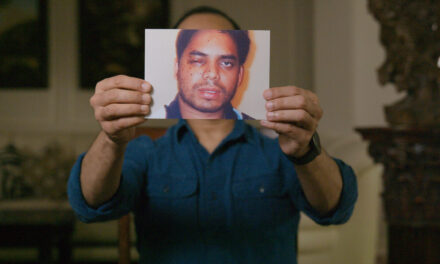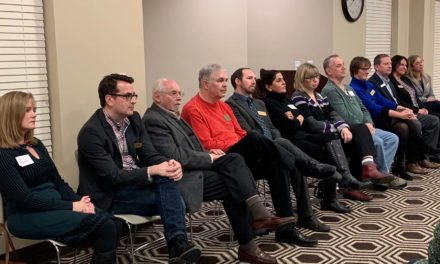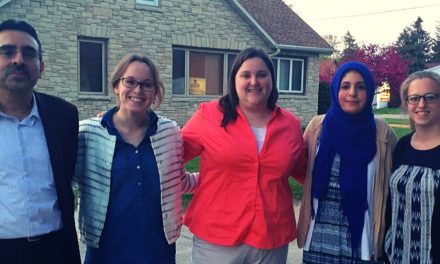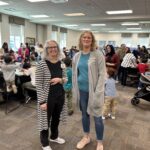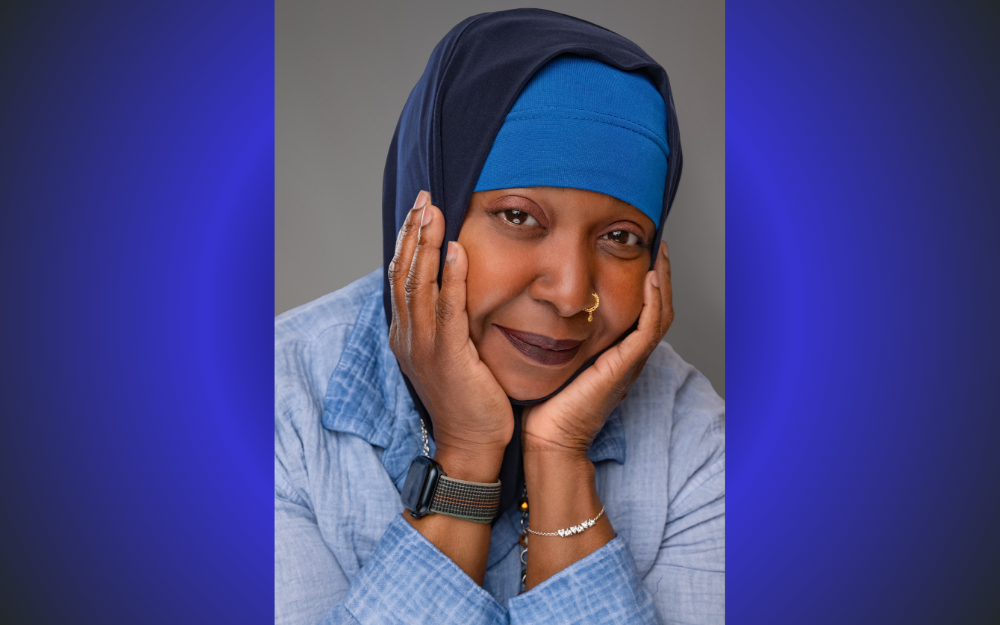
As anti-DEI laws and new federal rules threaten pathways, Dr. Williams says AHEC is pushing forward—getting more creative than ever to support healthcare professionals.
Already facing ongoing worker shortages and rising demands, state and nationwide, the healthcare industry was just dealt another blow—an issue that will complicate the work of Thalia M. Williams, Ph.D., M.S.P.H.
The U.S. Education Department recently announced a list of degrees, including nursing (MSN, DNP), that it will no longer consider professional degrees under forthcoming federal loan eligibility rules. This is likely to severely restrict access to critical funding for graduate nursing education.
Dr. Williams, Distinguished Program Evaluator for Wisconsin Area Health Education Centers (AHEC) and M.D. Admissions, collects and evaluates statewide data on healthcare, overseeing seven regional executive directors. Part of a nationwide network of programs for improving healthcare quality and accessibility, AHEC is a national health professions education and outreach program funded by the Health Resources and Services Administration and University of Wisconsin–Madison School of Medicine and Public Health.
Wisconsin AHEC offers a variety of education and training programs designed to increase the distribution of the healthcare workforce and enhance healthcare quality and delivery in communities across Wisconsin’s 72 counties.
“We do healthcare workforce development. We address healthcare disparities, and our goal is to improve the supply, distribution, retention and quality of healthcare practitioners in underserved areas,” said Dr. Williams, who has been with the organization for eight years. Data she collects determines whether AHEC’s efforts are having an impact and how they can best respond to the results.
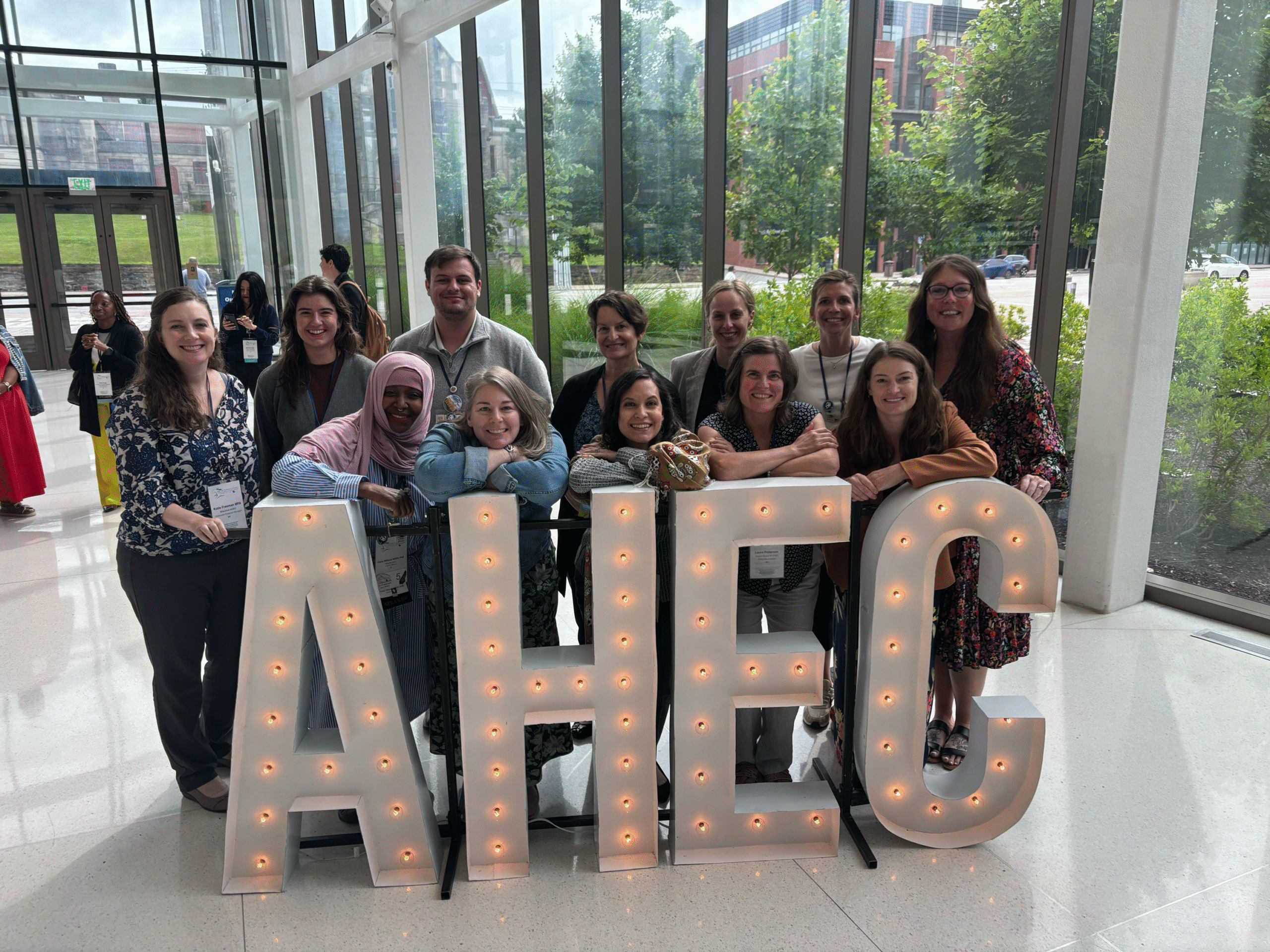
Dr. Williams with Wisconsin Area Health Education Centers (AHEC) team at the 2025 National Conference
According to Dr. Williams, anti-DEI executive orders and legislation have thrown a wrench in the work of AHEC and the healthcare industry at large. The latest education department announcement is another major setback.
“The Department of Education’s proposed a new definition of ‘professional degree programs’ that excludes nursing based on the Classification of Instructional Programs (CIP) codes, which I believe will probably interfere with the success we’ve had at Wisconsin AHEC in recruiting and retaining BSN, DNP and MSN nursing students in our signature programs, such as the AHEC Scholars.”
Dr. Williams said she and her colleagues have had to be increasingly creative and innovative.
“With the changes at the federal level that are coming down, we definitely have had to be strategic on how we update our programs. With the dismantling of DEI [Diversity, Equity and Inclusion programs], for example, we had to change all the language on our program descriptions and evaluation tools. It’s frustrating but it always seems to work out. Every year we seem to get things accomplished despite what comes down the pipeline because we believe in what we do,” said Dr. Williams, who has a doctoral degree in epidemiology and graduate degrees in educational leadership and public health with an emphasis in evaluation.
AHEC serves more than 6,500 learners each year, serving as a resource for high school students, health-professions college and graduate students and healthcare professionals for scholarship information, professional opportunities and programs such as WeCOPE, which helps healthcare students and professionals cope with life stress.
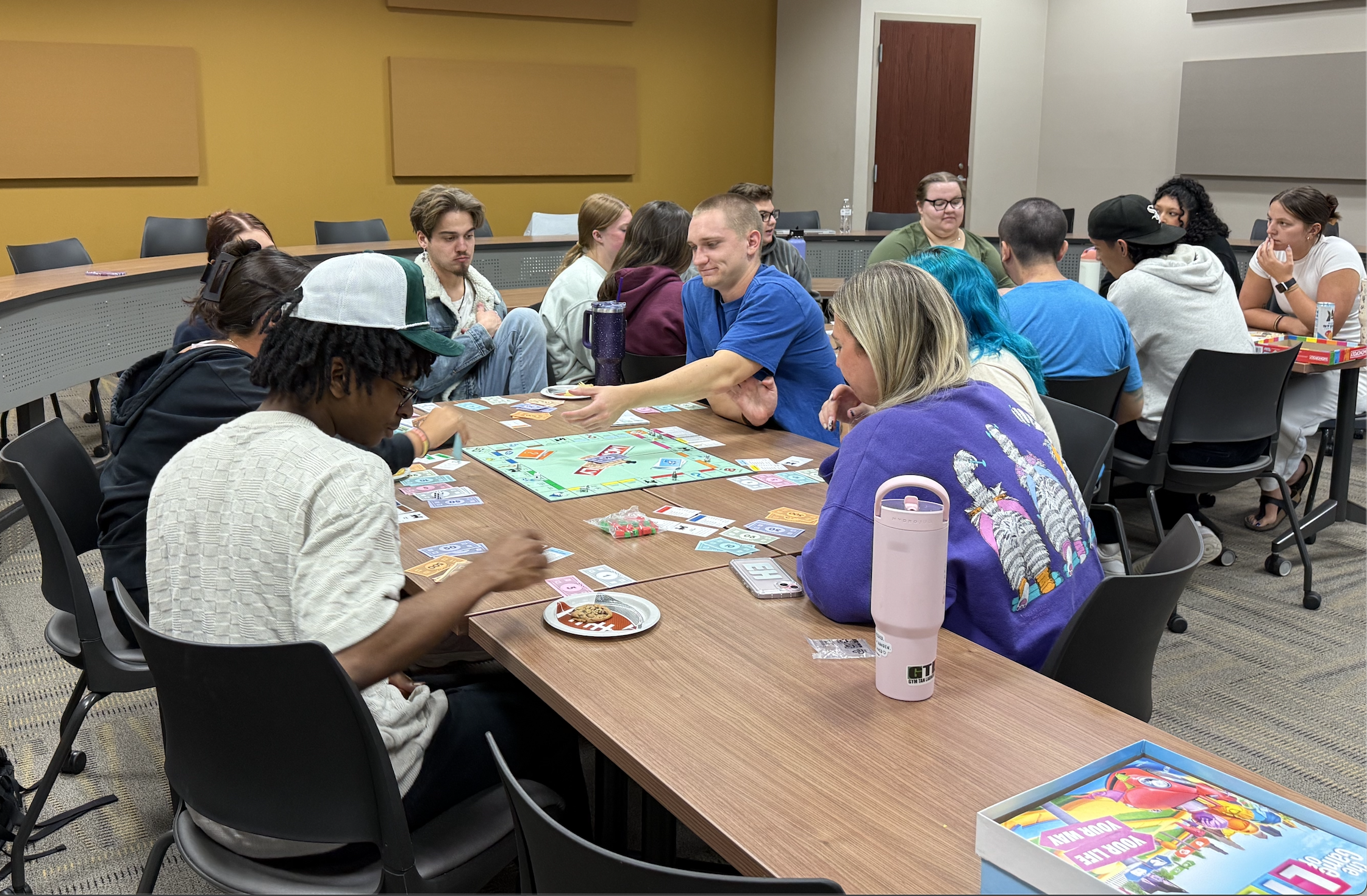
Using the game of Monopoly as a tool, Dr. Williams teaches her UW-Milwaukee Cultural Diversity and Social Work class economics and social issues.
Teaching is her life’s purpose
Along with her parttime position with AHEC to improve healthcare quality and accessibility in rural, underserved areas, Dr. William’s life is dedicated to teaching. She is an adjunct professor for the Helen Bader School of Social Welfare at University of Wisconsin–Milwaukee and Milwaukee Area Technical College Sociology Department – General Education Pathway Program.
Dr. Williams taught general science and math in the Milwaukee Public School (MPS) District for 15 years, an experience she said set her on a path to higher education.
“MPS prepared me to be able to write meaningful assessments and lessons. It also provided ongoing training and professional development, which gave me the start I needed to teach at the college level and be an effective instructor. MPS was the catalyst,” Dr. Williams said.
She finds being a college instructor extremely gratifying.
“Teaching at the college level has been such a rewarding experience. The students represent so many different backgrounds and they have goals that they want to achieve through their education.”
To Dr. Williams, teaching is a calling.
“Teaching allows me to serve a purpose that’s greater than me. Teaching and mentoring are something I think I do well, said Dr. Williams, who serves as mentoring support person at the University of Wisconsin-Madison School of Medicine and Public Health.
“I mentor first-year medical students because that’s the hardest year. I’m there to support them, listen, provide guidance and access to resources.”
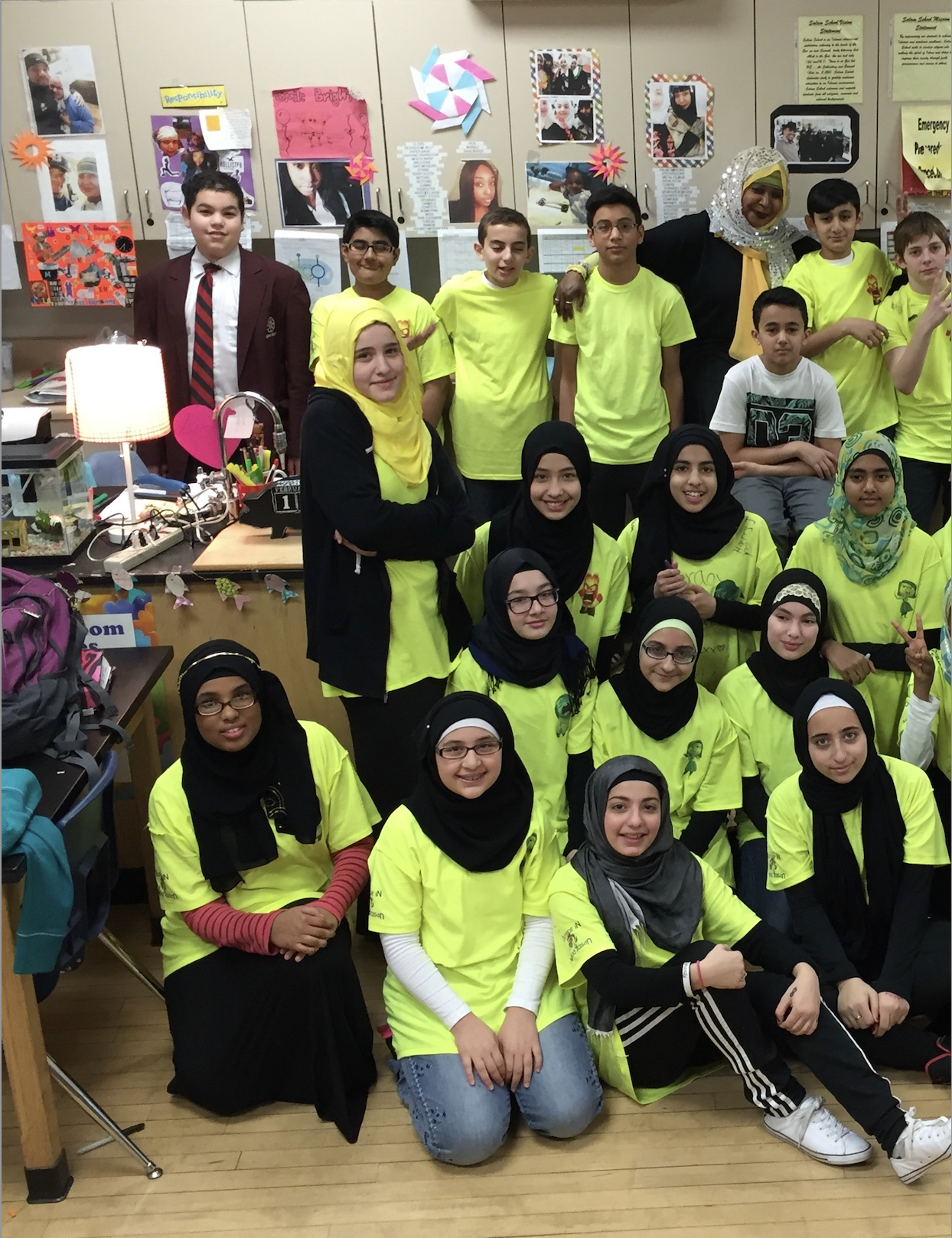
Dr. Williams’ 2016 science class at Milwaukee Salam School.
Her approach is all about forging strong connections.
“In the classroom, I build a community of learners where we get to know and support each other on our journey together through an entire semester. I get to know my students. We have lunch together. And it works.”
A pivotal experience for Dr. Williams was the year she spent teaching at Salam School, a private Muslim school for students in grades Pre-K-12.
“Teaching at Salam School inspired me to convert,” Dr. Williams said. “The message is there in the school. Prayer is built into the school routine. It was very powerful for me. Everyone there provided influence, encouragement and motivation. That was eight years ago, and I am now part of a larger community of Muslims who are very strong in their faith and highly devoted to the family unit.”
Dr. Williams remains in contact with most of her Salam School students.
Many of them are in graduate courses now and I still see them. I knew I would see them again.”
Building healthy communities
Another way Dr. Williams helps build strong communities and connections is through Striving to Improve Health for All (SIHA), of which Dr. Williams is a founding member, vice president and program evaluator. The Wisconsin-based initiative, which promotes the social and emotional wellbeing of Muslims in the state, is led by a team of professional women.
The nonprofit offers programs and outings, like a recent guided nature walk at Boerner Botanical Gardens, that provide the Muslim community with a safe space to talk about mental health without stigma.
Dr. Williams led a workshop this summer for girls at Wehr Nature Center that focused on friendship.
“I used propagating plants as an example of how to nurture friendship. We water our friendships with kindness; we nourish our friendships with caring and communication so they will flourish. We share the same goals, and we are connected through our religion. That makes our friendships thrive,” she said.
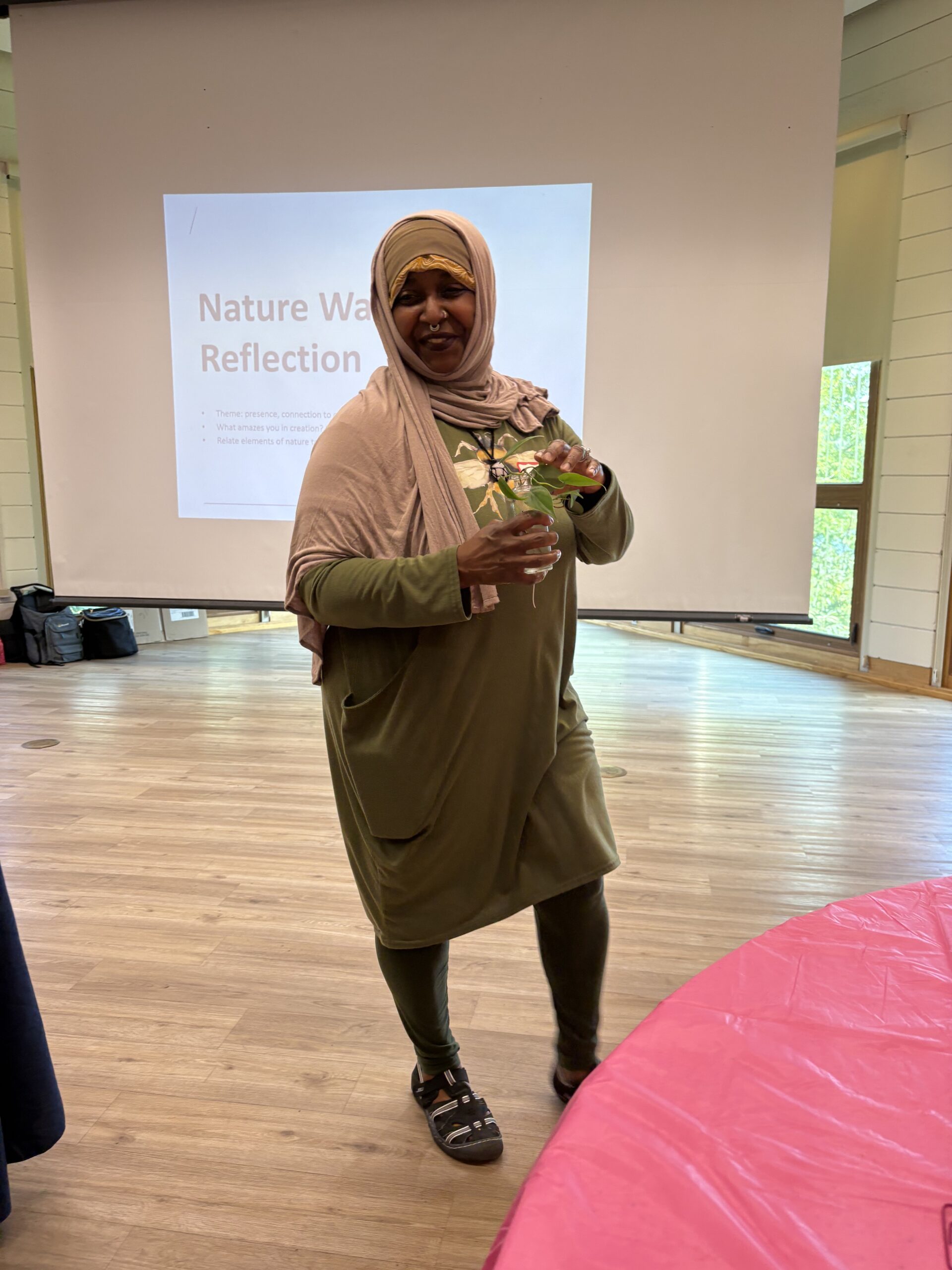
SIHA’s first event at Wehr Nature Center in Franklin
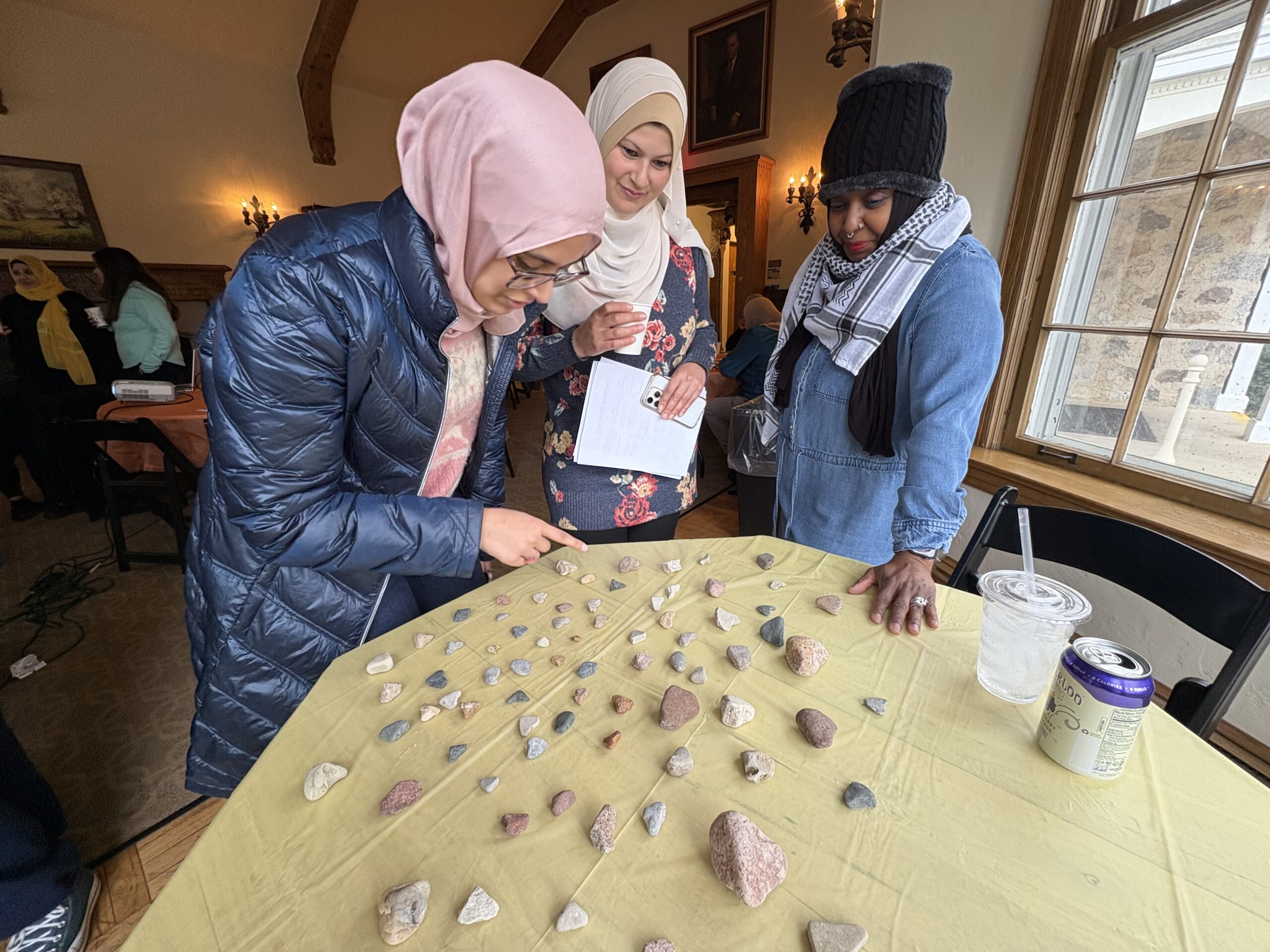
SIHA board members, Laila Azam (middle) and Dr. Williams (right) looking over heart-shaped rocks given to participants at the Boerner Botanical Gardens event in November.
Dedicated to family
Dr. Williams, who has two brothers and two sisters, was born in Milwaukee, but her family spent a lot of time in Marion, Indiana, with her mother’s parents and a large extended family.
“My mom’s parents kept us close. My brothers and sisters and I didn’t have many outside friends because we had so many cousins and they were our friends. My mom and her brothers and sisters were best friends. I was born in Milwaukee, but Marion felt like home to me,” said Dr. Williams.

Dr. Williams and her children (left) Parker and (right) Meena
Her grandfather was a Baptist preacher who marched with Jesse Jackson and started a food stamp program out of his home to address the hunger crisis in his community, Dr. Williams said.
Her own father, who was an engineer for Laddish Company, was a very hands-on dad who taught her “everything I needed to know about money,” took her hunting and fishing in Pardeeville, Wisconsin, and inspired her to get a college degree.
Dr. Williams is very close with her children, daughter Meena, a nursing student at MATC, and Parker, a musician (yes, named for Charlie Parker), who is studying music education at the University of Wisconsin–Milwaukee. She also considers Marwin, a former student she remained close with, her “adopted” son.
When she’s not teaching or coordinating efforts to improve the healthcare system across the state, Williams is a voracious reader.
I’ve been reading and learning more about the difference between the private sector and the public sector—John Elsom, a writer from the 1940s, and Alvin Toffler, who wrote “Future Shock.” I’m trying to help my students understand public law vs rules set by the private sector,” she said, and adds, “And I love Stephen King novels.”

